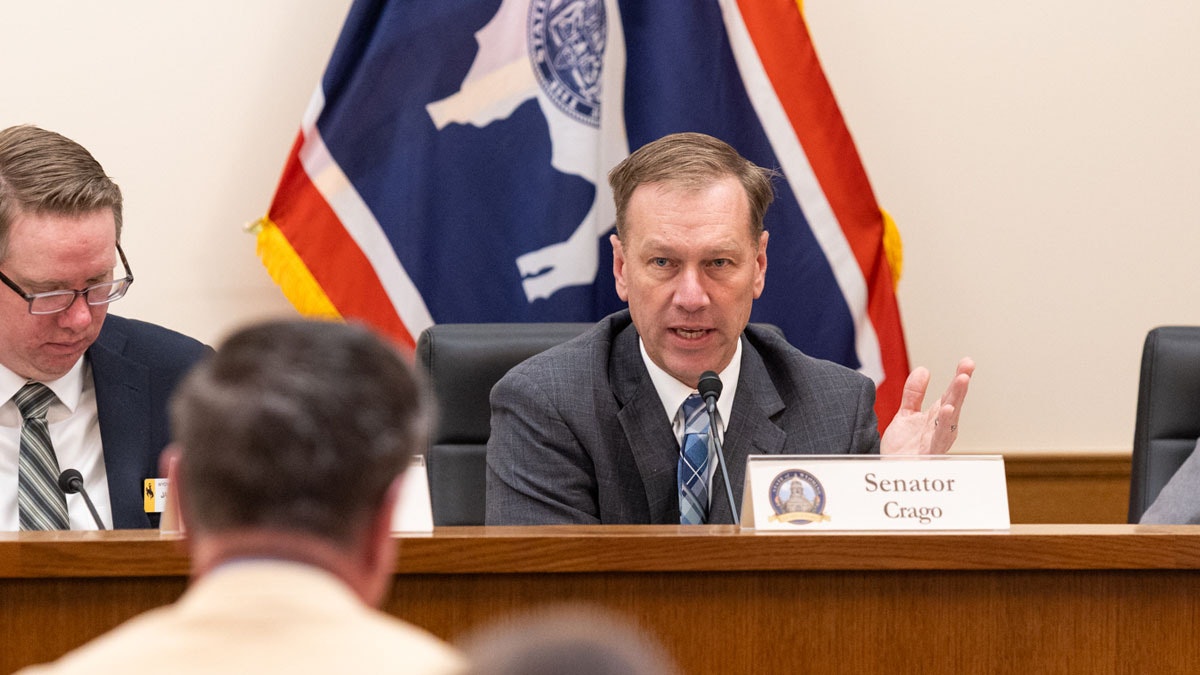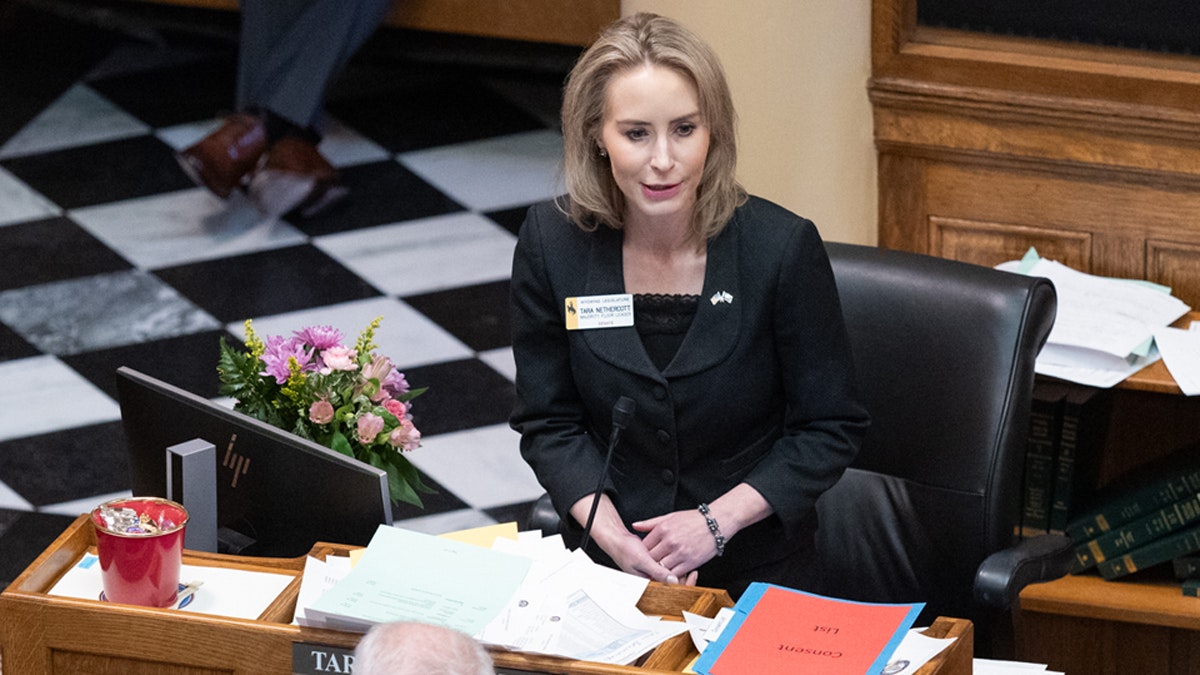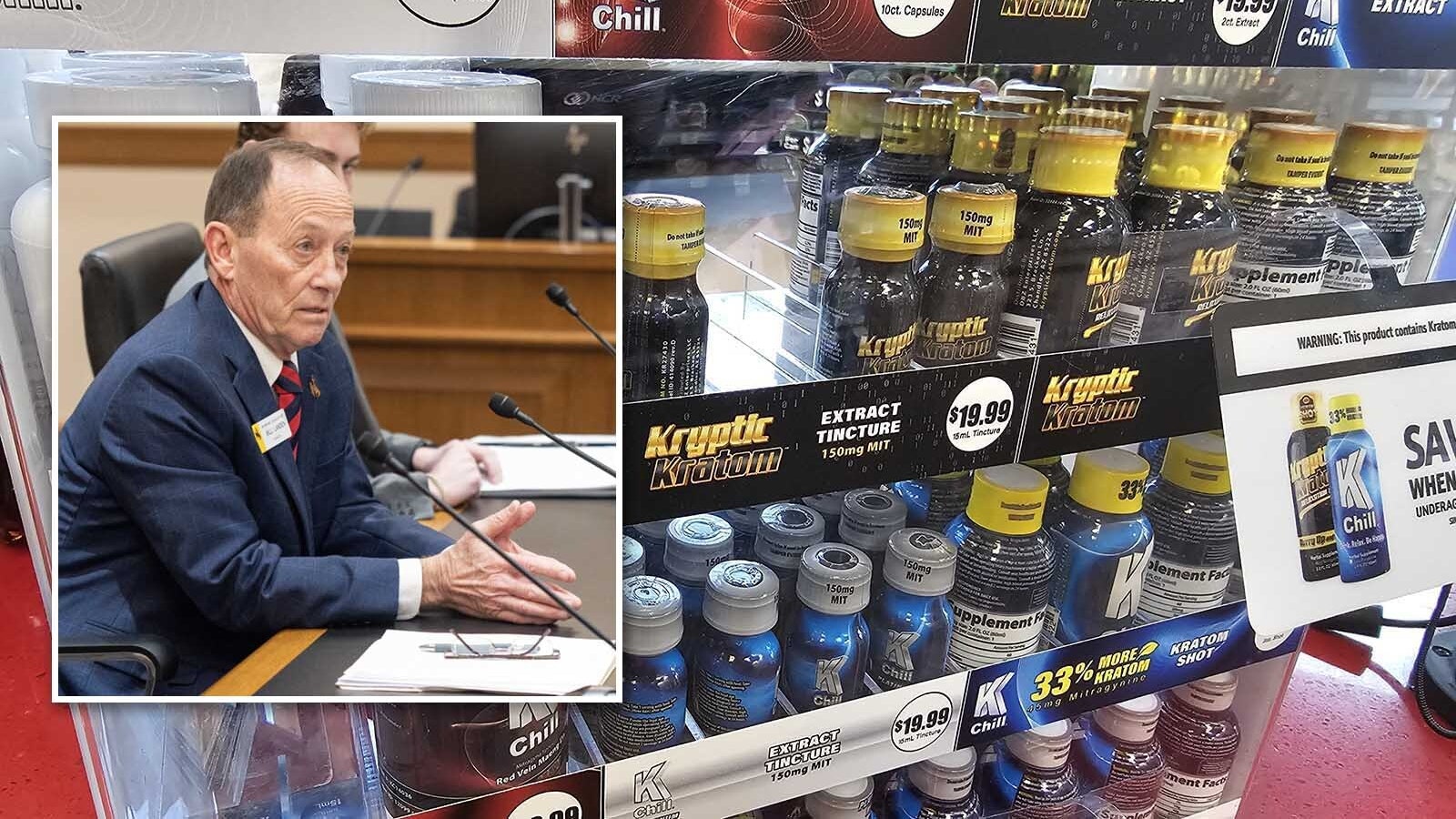Wyoming lawmakers will consider assessing harsher penalties for public officials who don’t produce public documents upon request and other heightened transparency measures.
Meeting in Lander on Friday, the legislative Joint Corporations, Elections and Political Subdivisions Committee heard from members of the press, a mayor, a county attorney, and others about balancing the public’s right to see what government is doing and the time and cost burden of producing public documents.
Committee Co-Chair Sen. Cale Case, R-Lander, proposed mobilizing draft legislation that would tighten public officials’ deadline for producing public documents down from 30 days to 10 days, unless given an exception by the state’s public records ombudsman. Case also asked committee staffers to include in the draft:
• Raising the civil penalty for not producing documents from $750 to “up to” $2,000.
• Giving the ombudsman “teeth” and the ability to assess those civil fines herself, with the backing of the attorney general’s office.
• Having local governments follow the state executive branch’s fee schedule, by which the state will cover the first $180 in production costs but venture an estimate for the requester after that.
The committee gave a unanimous voice vote in favor of drafting that legislation for review.
Case also proposed considering making private groups that form associations of public officials, like the Wyoming County Commissioners Association, subject to the Wyoming Public Records Act.
Their budgets and meeting minutes would become public in that case.
Sen. Bill Landen, R-Casper, said he’s not as keen on that.
Case said he isn’t sure about it either, but the committee could look into it.
Like, I’m The IRS
The proposed bill came after Wyoming Public Records Ombudsman Darlena Potter told the committee she doesn’t have enough “teeth” to enforce the act against government officials who simply don’t want to comply.
When government officials won’t give public documents to people who request them, and the ombudsman can’t resolve their reluctance by narrowing the requester’s inquiry, she’s left with little recourse, Potter said.
The penalty is a civil fine, not a criminal charge.
A lawmaker asked Potter what happens when she calls the sheriff in those instances.
“They perceive me as the IRS and they’re not talking to me either,” said Potter.
Potter in a Monday afternoon interview clarified: she’s not reaching out to local sheriffs as an enforcement mechanism, because she doesn’t feel the public records law gives her that avenue. She’s reaching out to local sheriffs about public records in their possession - and they sometimes treat those public requests with skepticism or hesitancy.
Potter told the committee she has fielded 27 public records request disputes since the start of this year. That figure grows about 20% every year. The most “interested” parties are not the press, they’re data miners.
She’s down to six remaining cases in mediation status of that original 27, said Potter.
Potter said she favors the state executive branch’s system of fronting the first $180 in production costs then sending a production cost estimate to the requester based on a fee schedule.
The Newspaperman
Bob Bonnar, Newcastle News Letter Journal publisher and editor-in-chief, had asked for tougher reforms than the committee ultimately dictated to the drafters.
He wanted the committee to take “willingly and knowingly” out of the law’s violation wording so that no government official could claim ignorance when withholding information.
Bonnar has waited 100 days for a record pertaining to prior Weston County elections, which he saw fit to investigate after the Weston County Clerk’s Office botched the 2024 election.
When confronted by Secretary of State Chuck Gray at the time, the clerk insisted the results were accurate, but they weren’t, Gray told the committee during his Thursday presentation.
That incident is under investigation after Gray called for the clerk’s removal from office.
Bonnar also probed the Weston County Commission regarding the 2022 appointment of a legislator when a vacancy surfaced.
The county conceded there had been a group-chat, secret ballot in that case, Bonnar said, but it took a $15,000 court case to unearth that confession.
Bonnar also asked the committee to reverse the “burden” on the public so that people asking for public records don’t have to go through the ombudsman to request lower or nonexistent fees — but the government entity would have to approach the ombudsman for permission to charge fees in the first place.
Yeah, But
Cheyenne Mayor Patrick Collins said he agrees that public documents belong to the public, but his office is swamped with requests from out-of-state data miners using the information for their own gain.
Cheyenne has bought a software application to help with this, he added.
Some of the things data miners have requested include every building permit on solar structures; every building permit given for residential and commercial properties; every purchasing order record, despite the city’s multimillion-dollar budget; and outstanding warrants.
“I understand our responsibility when it comes to public records requests,” said Collins. “(But) If some company in New York wants this information so they can make it easier to sell products, and it’s going to take my clerk two or three months to get that information, is that fair?”
Ain’t Perfect
Victor Miller, a Cheyenne man who ran an artificial-intelligence bot in last year’s race for mayor, told the committee that even in the state’s executive branch (with a fee schedule Potter acknowledged as exemplary), officials have a “disheartening” level of “disregard for the law.”
He noted a public records case in which Department of Education officials were found in noncompliance with the law.
The trouble with the law, Miller indicated, is that the requester doesn’t know what the requester doesn’t know. Even a judge ordering the production of records couldn’t conceive of all the records ripe for production in that case.
Miller said he’d like to see every public document placed online at or near its formation. That way agency staffers don’t have to launch a huge effort every time someone makes a request.
Even state public officials’ emails could be kept in a publicly-accessible portal since those are public documents, Miller said.
The legislative branch is exempt from that requirement, however. State lawmakers’ communications are not public record in Wyoming.
Clair McFarland can be reached at clair@cowboystatedaily.com.





